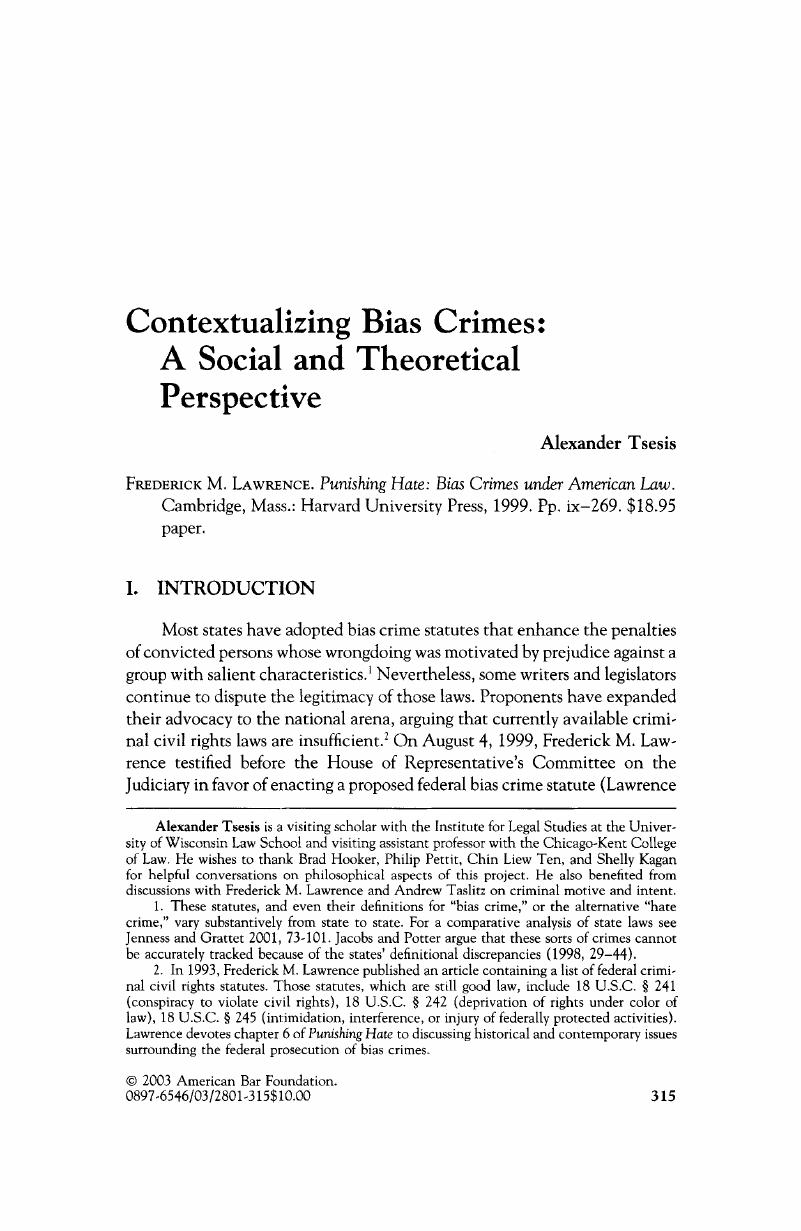Crossref Citations
This article has been cited by the following publications. This list is generated based on data provided by Crossref.
Goodall, Kay
2013.
Conceptualising ‘racism’ in criminal law.
Legal Studies,
Vol. 33,
Issue. 2,
p.
215.
Erba, Joseph
2014.
Effective or symbolic? Testing the constitutionality of the Matthew Shepard and James Byrd Hate Crimes Prevention Act.
International Journal of Discrimination and the Law,
Vol. 14,
Issue. 2,
p.
99.
Provazník, Jan
2020.
„Pravé“ verbální trestné činy z nenávisti.
Časopis pro právní vědu a praxi,
Vol. 28,
Issue. 4,
p.
657.





